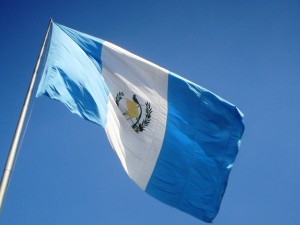
The official language in Guatemala is Spanish, although it is used as a second or third language by many of its inhabitants as the population is composed of a large variety of ethnic groups that make up more than 75% of the total population.
In the pre-Colombian period the Nahuatl language existed, in which the word for Guatemala (Quauhtlemallan) means “land of trees”. This language was not preserved in this region of Mesoamerica as it was in Aztec territory (now Mexico) because the multiple languages of the powerful Mayan culture were predominant.
There are 24 languages in the country in total: 21 of them are Mayan languages spoken in rural areas, Xinca spoken in the southeast of the country, Garifuna in the Atlantic coast, and Spanish mostly in urban areas.
There are many words in Guatemalan Spanish, so-called “regionalisms” that are unique to the country. These words use certain sounds and letters that are very common in Mayan languages, such as “ch”, “x” pronounced as “sh”, prefixes such as “ix”, etc., which are clear indications of the influence of indigenous languages. Of these words, the majority that have “x” are adjectives.
There are also several words, many of which are in danger of being lost if they have not already fallen into disuse, which name native plants, trees and animals.
Other common features are the lack of differentiation between the pronunciation of S, C and Z, such as in the Spanish from Spain, and the “yeismo” (the pronunciation of “ll” as “y”) that is common in Central America, with the exception of Costa Rica.
Mayan languages
Guatemala’s “Mayan languages” are linguistic variations that arose because people were separated by great distances. This meant that the differences became ever larger, to the point that differences could be seen generating in each place, with the result of distinct languages in each place and population.
The 21 languages are:
• K’iche’
• Q’eqchi’
• Kaqchiquel
• Mam
• Poqomchi
• Tzu’tujil
• Achí
• Q’anjo’bal
• Ixil
• Akateko
• Popti
• Chuj
• Poqomam
• Ch’orti’
• Awuakateko
• Sakapulteko
• Sipakapense
• Uspanteko
• Tektiteko
• Mopan
• Itza
Xinca
It is an Amerindian language that does not belong to the family of Mayan languages and is still spoken in the southeast of the country.
Xinca comes from an unknown, isolated, familyknown as the Xinca branch of languages.
Garífuna
It is the language spoken in the Atlantic coast regionand it belongs to the Arawak family of languages in the Caribbean branch.
It is spoken by descendants of black Africans.
As mentioned earlier, today there are many unique Guatemalan words and regionalisms that are used and passed down from generation to generation.
This is the clear influence of XInca and the Mayan languages, words that were transformed and adapted, becoming many of the common terms currently used by people of all ages.
They are words that keep syllables that carry the letter “x”, almost always at the beginning, and depending on the word or term, it is written with “ch” or“sh”. There are other words that come from the syllables “h’ui” that have been transformed into syllables like “güi” and “güe”.
Some examples of these words, and their meaning in neutral Spanish, could be:
shuco = sucio (dirty)
cholco = sin dientes (no teeth)
chilero = bonito, bueno (pretty, good)
chucho = perro, tacaño (dog, miserly)
chola = cabeza (head)
sheca = inteligente, cabeza (intelligent, head)
canche = rubio (blonde)
chafa = del ejército (from the Army)
chanchuyo = hacertrampa (to cheat)
chonte = policía (police)
cusha = aguardiente (brandy)
güiro = niño (child)
ishto = niño (child)
mish = tímido (shy)
muchá = aleros, grupo de amigos (eaves, group of friends)
puchis = expresión de asombro (expression of astonishment)
sho = hacer silencio (be quiet)
talishte = resistente (resistant)
tusha = desear mala suerte (to wish bad luck)





